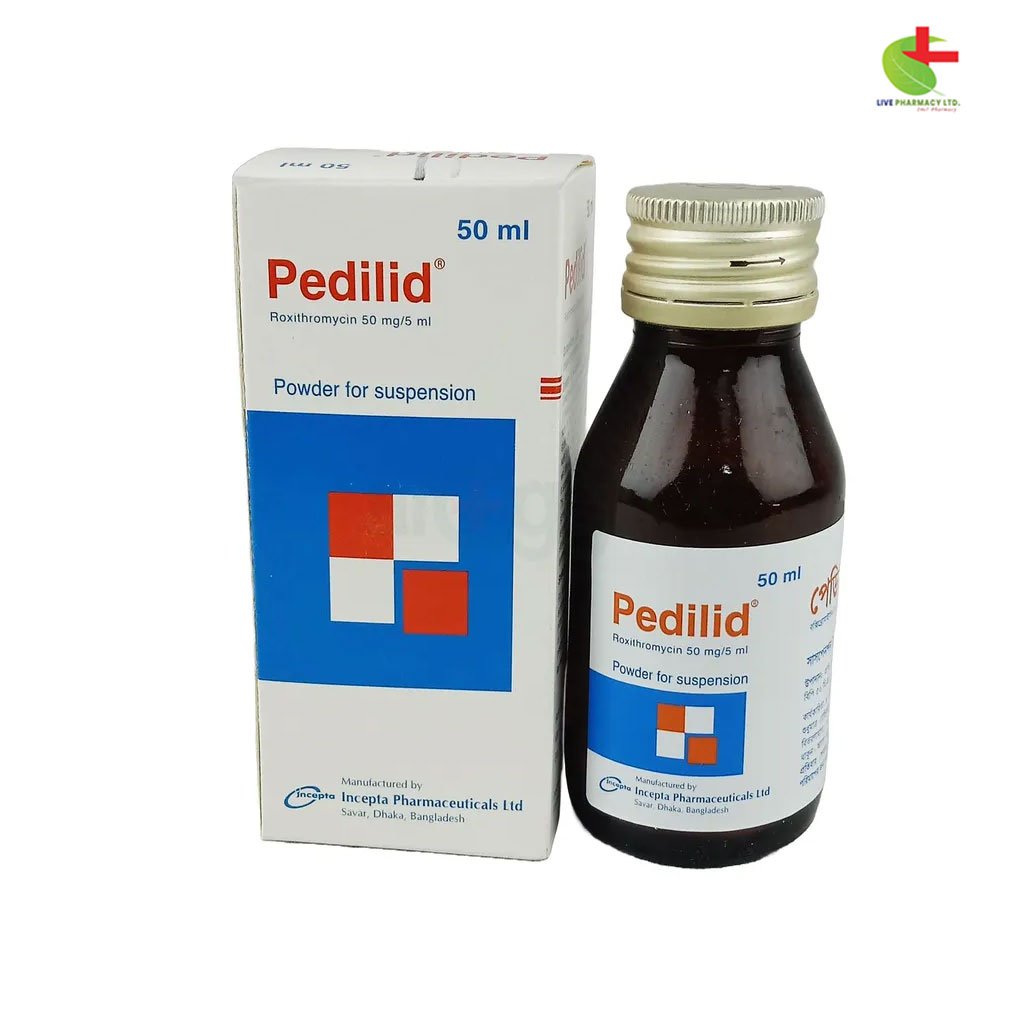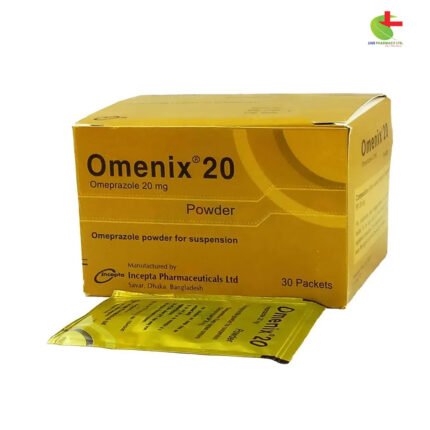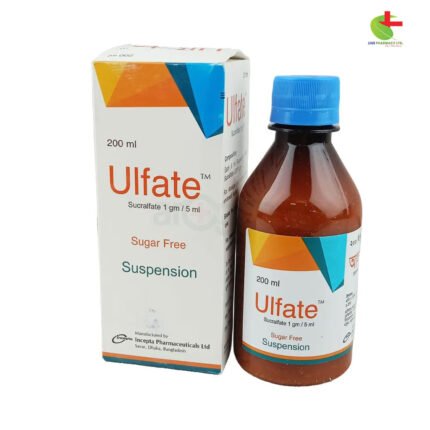Pedilid Suspension
80.00৳ Bottle (50ml)
- Pedilid is a macrolide antibiotic effective against a range of infections, including respiratory, ENT, skin, and genital infections.
- It targets Gram-positive and Gram-negative bacteria, along with atypical pathogens like Mycoplasma and Chlamydia.
- Well tolerated by both adults and children, Pedilid is generally administered on an empty stomach for optimal absorption.
- Use this medication under the guidance of a registered healthcare professional to ensure safe and effective treatment.
 Brand
Brand
|
Incepta Pharmaceuticals Ltd |
|---|---|
 Generics
Generics
|
Roxithromycin |
 Type
Type
|
Powder for Suspension |
Indications
Pedilid is recommended for the management of infections caused by susceptible microorganisms, including:
- Respiratory Infections: Effective against pneumonia, both acute and chronic bronchitis, as well as bronchopneumonia.
- ENT Infections: Treats tonsillitis, pharyngitis, sinusitis, and otitis media.
- Skin Infections: Addresses conditions such as folliculitis, furuncles, cellulitis, carbuncles, pyoderma, impetigo, and infected dermatitis.
- Genital Infections: Indicated for urethritis, prostatitis, cervicitis, and salpingitis, particularly those caused by Chlamydia trachomatis.
Always use this medication under the guidance of a registered healthcare professional.
Description
Pedilid is a macrolide antibiotic exhibiting antibacterial activity comparable to erythromycin. It targets Gram-positive bacteria including staphylococci, streptococci, listeria, and corynebacteria, as well as Gram-negative bacteria such as gonococci, Haemophilus influenzae, Haemophilus ducreyi, Legionella, and Campylobacter. Additionally, it is effective against atypical pathogens like Mycoplasma and Chlamydia. Pedilid is beneficial for treating infections of the upper and lower respiratory tracts, otorhinolaryngological conditions, skin infections, dental issues, and genital infections. It is generally well tolerated by both adults and children.
Pharmacology
Roxithromycin, the active ingredient in Pedilid, works by inhibiting protein synthesis. It achieves this by irreversibly binding to the 50S ribosomal subunits of susceptible organisms, thereby obstructing transpeptidation and translocation processes, leading to inhibited cell growth.
Dosage & Administration
Adult Dosage: The standard dosage for adults is one 300 mg tablet taken once daily, or one 150 mg tablet taken twice daily for a minimum of two days following symptom resolution. A typical treatment course lasts between 5 to 10 days. It is recommended to take Roxithromycin on an empty stomach. For patients with severe hepatic impairment, the dose should be reduced to 150 mg once daily.
Pediatric Dosage: For children, the recommended dose is 2.5 to 5 mg/kg of body weight, administered twice daily. The following guidelines can be followed:
- 6 to 11 kg: 25 mg Roxithromycin every 12 hours.
- 12 to 23 kg: 50 mg Roxithromycin every 12 hours.
- 24 to 40 kg: 100 mg Roxithromycin every 12 hours.
A standard treatment course for children also spans 5 to 10 days.
Always use this medication under the guidance of a registered healthcare professional.
Interaction
Pedilid has no significant affinity for cytochrome P-450 binding sites, making it unlikely to cause drug interactions via this enzymatic pathway. It exhibits mild interactions with theophylline, although these are generally not clinically significant. There is no documented alteration in the pharmacokinetics of carbamazepine or warfarin. Additionally, antacids, H2-receptor antagonists, and food do not affect the absorption of Pedilid.
Contraindications
Roxithromycin should not be co-administered with ergotamine or its derivatives, as this may lead to arterial spasm and severe ischemia.
Side Effects
Pedilid is generally well tolerated across all age groups. Fewer than 4% of patients report side effects, which may include nausea, abdominal discomfort, diarrhea, and hypersensitivity rash. Other reported side effects are minor and may include vomiting, dizziness, headache, itching, dyspepsia, gas, tinnitus, vertigo, and constipation. These side effects typically do not require discontinuation of therapy.
Pregnancy & Lactation
The safety of Roxithromycin during pregnancy has not been established. It does appear in breast milk in small quantities but has not been shown to cause adverse effects in breastfeeding infants.
Precautions & Warnings
Pedilid should be avoided in individuals with a known hypersensitivity to the drug. For patients with liver disease, the dosage should not exceed 150 mg twice daily.
Therapeutic Class
Macrolides













Reviews
There are no reviews yet.